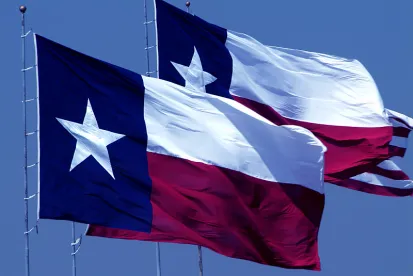Key Takeaways
-
What Happened: TCEQ issues draft Penalty Policy and plans to propose Compliance History Rule revisions
-
Who’s Impacted: Regulated entities with facilities in Texas subject to TCEQ jurisdiction
-
What Impacted Entities Should Consider Doing in Response:
-
Review TCEQ proposal and announcement
-
Consider commenting on the Penalty Policy proposal by October 30 deadline
-
Monitor and consider commenting when Compliance History proposal is issued
-
TCEQ has proposed changes to its Penalty Policy for the first time in six years and will soon propose changes to its compliance history rules. The proposed Penalty Policy changes are open for public comment until October 30, 2020. TCEQ expects to propose compliance history rule revisions in December and publish adopted changes by June of next year.
The key driver for making Penalty Policy changes now is to enhance TCEQ’s authority to assess penalties for catastrophic events (e.g., the March 2019 Intercontinental Terminals Company chemical storage tanks fire in La Porte), but the proposal includes more comprehensive changes to update to the policy to include statutory changes and enhance the agency’s penalty discretion overall. If adopted as proposed, regulated industry will see key changes to penalty calculations, in particular:
-
Higher penalties for actual releases based on the level of harm, including, e.g., increasing the percentage of the statutory maximum penalty assessed from 30% to 50% for “major harm” violations from minor sources and moderate harm” violations from major sources.
-
Increasing the percentage of the statutory maximum penalty assessed for major programmatic violations (e.g., for failure to have a permit) from 15% to 20% for major sources, and from 5% to 10% for minor sources;
-
Providing flexibility to assess a higher number of violation events associated with continuous violations (e.g., by allowing for calculating the number of events for a moderate actual release “up to weekly” instead of “up to monthly”);
-
Creating an “other factors that justice may require” penalty enhancement of 20% for reportable emissions events that occur in counties with populations of 75,000 or greater;
-
Elimination of the 20% early settlement deferral for respondents that have two or more prior administrative penalty orders.
While few of the Penalty Policy changes are individually significant on their own, taken together, future penalties for many allegations will undoubtedly increase, in some cases substantially. With strong momentum behind them and months of internal development, it is likely that most, if not all, of the proposed changes, will be adopted.
The agency’s current compliance history rules have come under criticism for failing to account for significant events. In response, TCEQ is planning to propose a new compliance history classification called “under review” to address exigent situations, such as a major explosion or fire that significantly impacts the public and the environment. The proposed rule will specify actions the commission may take regarding sites that are “under review,” require notice of the reclassification to persons associated with the site, and provide a process to appeal the reclassification.





 />i
/>i

